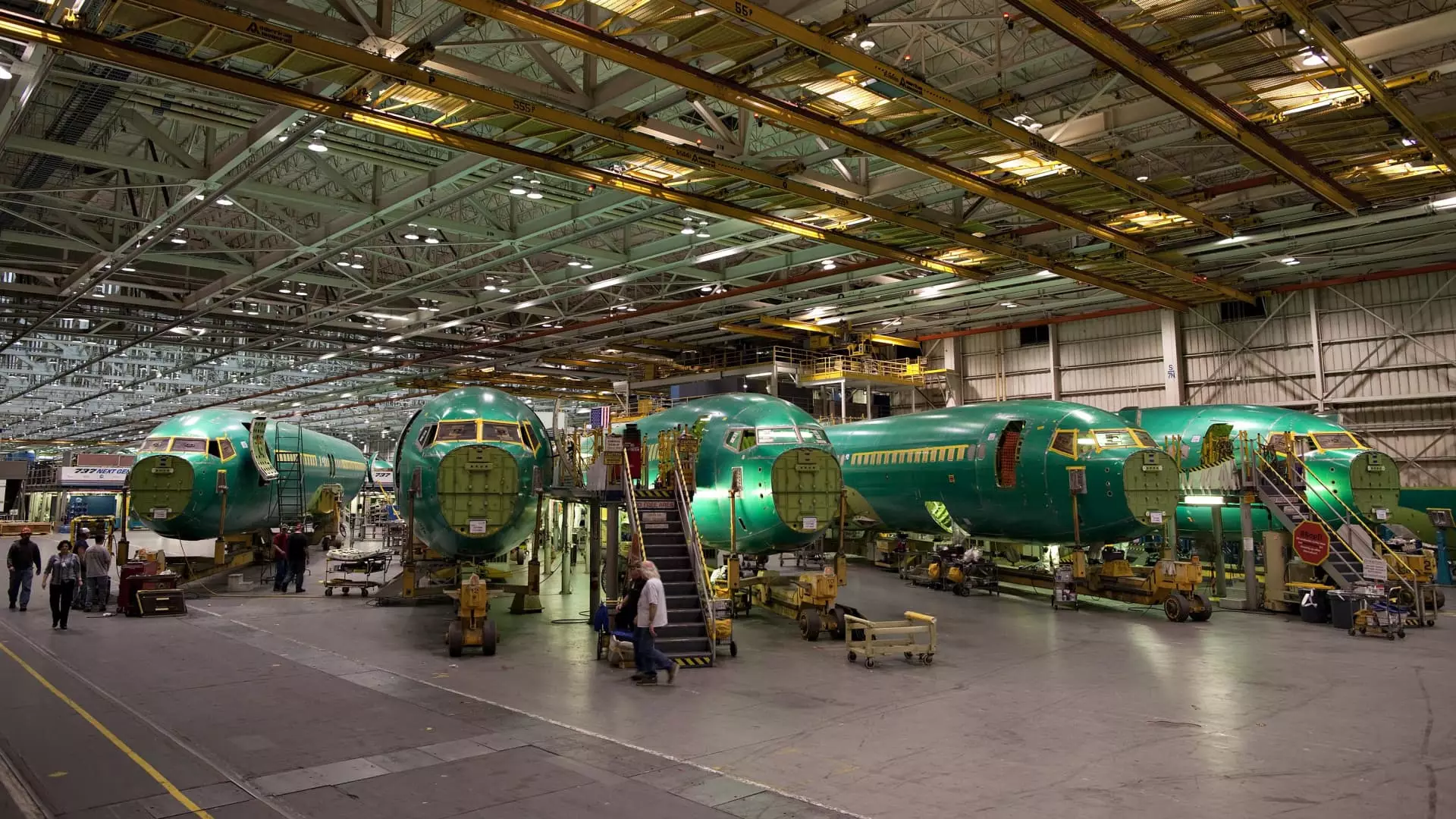Boeing made a bold decision on Monday to acquire Spirit AeroSystems in an all-stock deal valued at $8.3 billion. The planemaker stated that this acquisition will enable them to enhance safety and quality control in their operations. By agreeing to pay $37.25 a share in Boeing stock for Spirit, with an equity value of $4.7 billion, Boeing aims to align the companies’ production systems and workforces.
Spirit AeroSystems, based in Wichita, Kansas, manufactures fuselages for the 737 and other aircraft parts, including sections for Boeing’s 787 Dreamliners. Boeing’s decision to buy back Spirit AeroSystems comes after a fuselage panel blowout incident on an Alaska Airlines flight that raised concerns about safety and quality control. With Boeing accounting for about 70% of Spirit’s revenue, this acquisition will have a significant impact on both companies’ operations.
The deal between Boeing and Spirit AeroSystems is not only strategic but also financially substantial. Spirit’s shares closed at $32.87 a share, giving the company a market capitalization of approximately $3.8 billion. This acquisition is expected to strengthen Boeing’s position in the aerospace industry and streamline its production processes. The transaction value of $8.3 billion emphasizes the magnitude of this acquisition for both companies.
Boeing anticipates the deal with Spirit AeroSystems to close by mid-2025, contingent on approval from regulators, Spirit shareholders, and the sale of Spirit’s operators dedicated to Airbus planes. Furthermore, Spirit’s CEO Pat Shanahan is considered a potential successor to Boeing’s current CEO, Dave Calhoun. This acquisition marks a significant step for Boeing as it seeks to enhance its quality control measures and regain trust in the marketplace.
Amidst concerns about safety and quality, Boeing has implemented measures to improve the production process. By accepting only defect-free fuselages from suppliers like Spirit AeroSystems, Boeing aims to reduce errors and ensure seamless manufacturing. The Federal Aviation Administration’s scrutiny of Boeing’s production lines underscores the importance of stringent quality control practices in the aerospace industry.
The acquisition of Spirit AeroSystems presents both challenges and opportunities for Boeing. While it signals a commitment to enhancing safety and quality, the financial implications of the deal and the regulatory approvals required pose significant hurdles. However, by aligning production systems and strengthening quality control measures, Boeing can regain consumer confidence and drive growth in the aviation sector.
Boeing’s acquisition of Spirit AeroSystems marks a significant milestone in the aerospace industry. By prioritizing safety, quality, and regulatory compliance, Boeing aims to position itself as a leader in the market. This strategic move not only demonstrates Boeing’s commitment to excellence but also paves the way for future innovation and growth in the aviation sector.


Leave a Reply